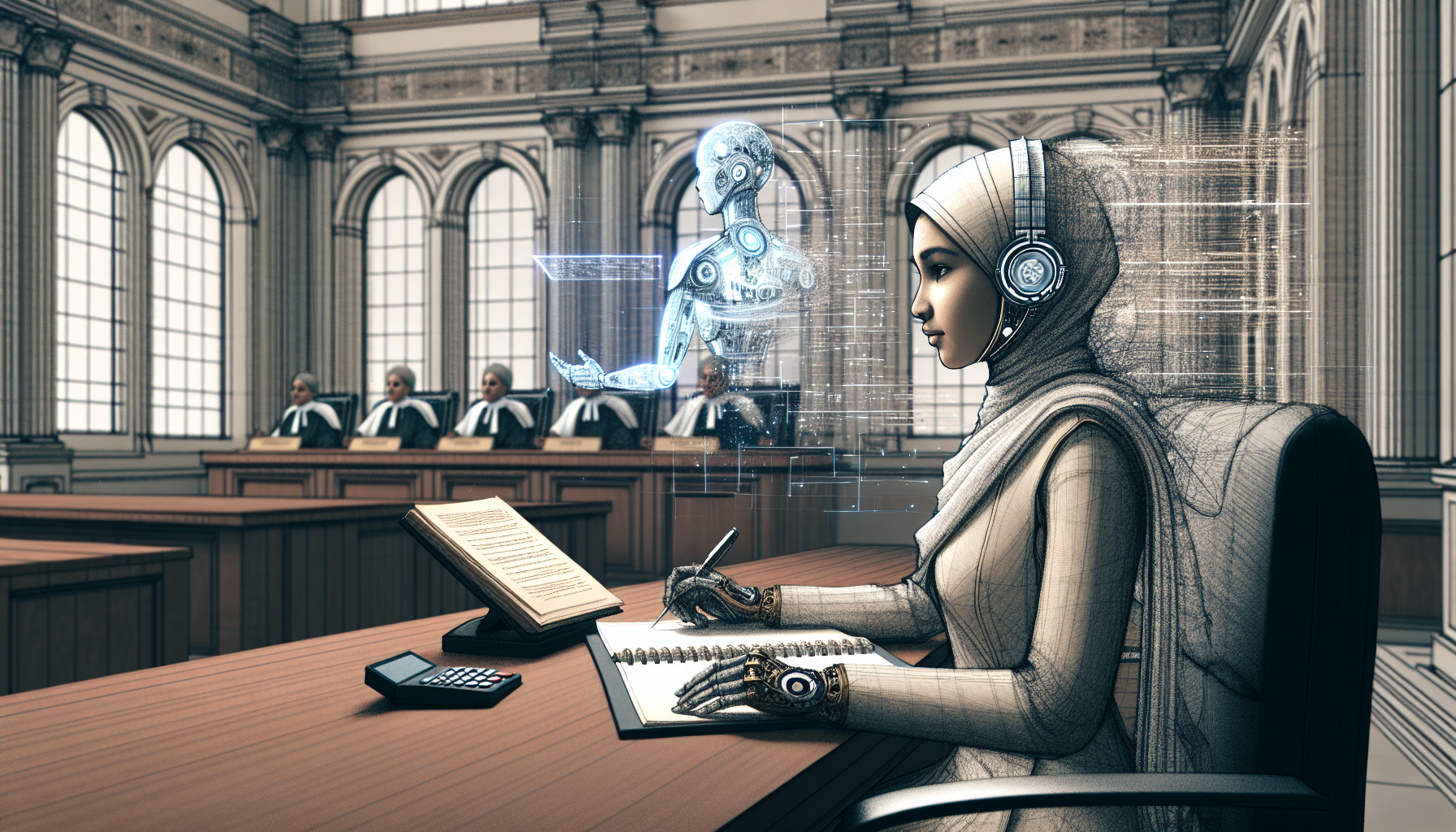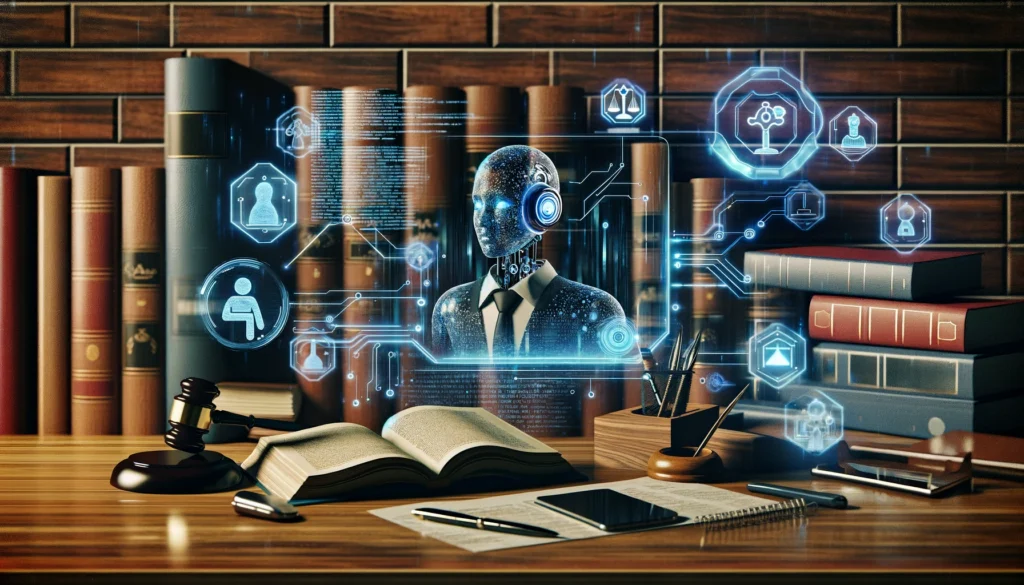
Unveiling the Future of Paralegal Efficiency with GPT Technologies
The realm of estate planning has always been document-intensive, requiring meticulous management and precision. Efficient handling of these documents is crucial in ensuring smooth legal proceedings and client satisfaction. The advent of ChatGPT and Large Language Models (LLMs) brings a promising future for optimizing paralegal tasks. Integrating these advanced technologies into daily workflows not only increases efficiency but also minimizes errors, proving indispensable in managing estate planning documents.
Streamlining Document Creation: Harnessing ChatGPT for Drafting Precision
One of the most arduous tasks in estate planning is drafting a variety of documents. ChatGPT can revolutionize this process by drafting wills, trusts, and other legal documents with commendable precision. For instance, a paralegal can use ChatGPT to generate a will by prompting: “Draft a will for a client leaving all assets to their spouse, and appoint a guardian for two minor children.” The AI can produce a draft that is both accurate and legally sound, greatly reducing the time and effort traditionally required.
Effective prompting is essential for obtaining high-quality drafts from ChatGPT. An example of a nuanced prompt might be: “Create a trust document that specifies distribution of property to children at the age of 30, with a clause for tuition payments before that age.” By offering specific details and clear instructions, paralegals can leverage ChatGPT to produce tailored, professional-grade documents.
From here, the focus can shift to improving document organization to further elevate workflow efficiency.
Also read:
Elevating Document Organization: Intelligent Categorization and Filing Techniques
Proper categorization and filing of estate planning documents ensure seamless access and management. LLMs can enhance this process significantly. They can automatically categorize documents based on content and predefined criteria, streamlining organization and retrieval. For instance, prompts like: “Categorize these client documents into wills, trusts, and POAs” can automate the filing process, ensuring documents are correctly sorted and easy to locate.
Automated categorization with LLMs not only saves time but also reduces human error. This sets the stage for swift and efficient document retrieval when needed.
Also read:
Swift Document Retrieval: Transforming Search Processes with ChatGPT
Swift document retrieval is critical in the fast-paced legal industry. Advanced search capabilities powered by ChatGPT can transform this process. Paralegals can craft nuanced prompts to quickly locate specific documents. For instance, using a prompt like: “Find the latest will draft for client John Doe with updates on minor children guardianship” ensures that the search is both accurate and rapid.
Natural language queries allow paralegals to interact with document libraries more intuitively. LLM capabilities facilitate sophisticated search algorithms that deliver precise results even for complex queries. By leveraging these technologies, the time spent digging through files is dramatically reduced.
Next, we focus on maintaining up-to-date and compliant document libraries to avoid legal pitfalls.
Also read:
Ensuring Compliance and Updates: Maintaining Up-to-Date and Compliant Document Libraries
In the legal field, compliance and timely updates of documents are paramount. LLMs can automate these tasks, ensuring that all documents adhere to current laws and regulations. ChatGPT can set up reminders and alerts for document reviews and updates, minimizing the risk of non-compliance. For example, a prompt such as: “Identify documents in need of compliance updates and alert the paralegal team with a 30-day review period” can automate the monitoring process effectively.
The use of AI for compliance purposes means paralegals can focus on more complex tasks, secure in the knowledge that their document libraries are current and accurate. This directly feeds into improved client communication, providing a seamless experience for all parties involved.
Also read:
Optimizing Client Communication: Leveraging LLMs for Improved Correspondence
Effective communication with clients is the cornerstone of successful legal practice. LLMs can draft updates, summaries, and crucial correspondence, ensuring clarity and professionalism. For instance, using a prompt like: “Draft an update for client Jane Smith summarizing the key points of her revised will and the next steps” results in well-structured communication that keeps the client informed and engaged.
This not only enhances client satisfaction but also affirms the professionalism of the legal services provided. From here, attention can shift towards building stronger internal collaborations through advanced GPT tools.
Also read:
Enhancing Collaboration: Integrating GPT Tools with Paralegal Workflows
To foster better teamwork and project management, integrating ChatGPT with paralegal workflows can be transformative. GPT tools can assist in coordinating tasks, creating project timelines, and facilitating communication among team members. For example, prompts like: “Generate a project timeline for the estate planning team to finalize all client documents within the next quarter” help streamline workflows and improve task management.
Incorporating these outputs into existing workflows enables smoother collaboration and ensures that team members are always on the same page. However, safeguarding sensitive information while using these technologies remains crucial.
Also read:
Guarding Confidentiality: Security Measures When Using LLMs
In any legal context, maintaining data security and confidentiality is non-negotiable. While GPT technologies offer immense benefits, their use must be tempered with robust security measures to protect sensitive information. A vital approach includes using encrypted communication channels and secure servers for data storage and processing.
Paralegals should be trained on best practices for prompt engineering that minimizes the exposure of confidential details. For example, using anonymized data when drafting with ChatGPT ensures privacy while still leveraging AI capabilities: “Create a draft trust document for Client A with X assets distributed among beneficiaries B, C, and D”.
Ensuring that technology providers comply with stringent data protection regulations further fortifies the integrity of the legal practice. Through vigilance and strategic employment of GPT tools, paralegals can enjoy the efficiencies of modern technology without compromising on confidentiality.


